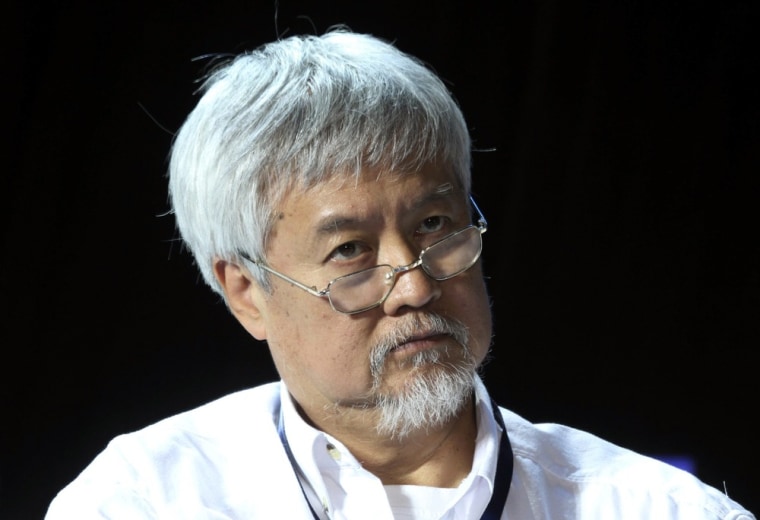BEIJING – Chinese state television aired a surprising video Sunday of one of the country’s best-known bloggers in handcuffs admitting that he spread irresponsible information on the Internet – just days after the government announced a new crackdown on online rumors.
Charles Xue, better known on China’s Twitter-like service Weibo by his handle Xue Manzi, is one of the country’s most popular social commentators, with 12 million followers.
The Chinese-American venture capitalist is known for making controversial remarks on social and political issues – so his confession that he posted unverified information on his account was all the more startling.
In an effort to curb China's unruly Internet, the nation's highest court issued a judicial interpretation last week saying social media users who have 5,000 or more followers/readers or are reposted more than 500 times can be charged with “creating a disturbance” if their postings include rumors or false information. Those found in violation of the new rules could face jail sentences of up to three years.
Xue would have likely been the most high profile case so far involving the new media laws – if he had actually been charged with that. Instead Xue was detained three weeks ago and charged with allegedly soliciting prostitutes and group sex – but the police initially made no mention of his online postings.
During the 10 minute report on CCTV state television, Xue said, “I was irresponsible. I didn’t properly verify all the facts in my posts.” He warned, “freedom of speech cannot override the law.”
CCTV reporters questioned Xue specifically about some of his offending posts, the Washington Post reported. In one, he wondered whether China’s water, whose quality is always in question, contained contraceptives.
“First of all, I didn’t double-check my facts,” Xue said. “Secondly, I didn’t raise constructive suggestions to solve the problem. Instead, I just simply spread these ideas emotionally.”
He said that as his popularity grew online, he increasingly felt “like a king on the Internet,” which “gratified [his] vanity greatly.”
“It’s not right for [popular bloggers] to behave higher than the law,” he said. “If there is no moral standard or cost for slander, you can’t manage the Internet. And there are no limits. It becomes a big problem.”
With millions of followers, Xue is what is known in China as a “Big V,” a nod to the “V” that is affixed to the profiles of verified users on Weibo. Chinese authorities have long understood the influence such mega users have on popular opinion online and in recent months have tried to bend this group of trendsetters to their will.
On August 10, more than a dozen Big Vs met with the director of the State Internet Information Office, where they were warned to toe the new line and facilitate “more positive” online discussions or face the consequences.
Xue’s on-air appearance did not go unnoticed by other Big V users.
“When Xue was arrested, it was claimed by the mainstream media that he was detained for alleged group sex, not for his Big V identity, “ wrote Yang Bo, himself a Big V with more than 9 million followers on Weibo. “But right now Xue is making a confession of spreading irresponsible online posts and it has nothing to do with prostitution…Whether this is an issue of prostitution or online speech still remains unclear.”
Sunday’s confession by Xue – news anchors stress he spoke from jail on his own free will – was setup first with a brief summation of the prostitution solicitation charges against him, but focused on his online troubles. The very public confession suggests that China is backing up its Internet crackdown with consequences.
As investigators reportedly dig into the veracity of his nearly 85,000 posts online, Xue took great efforts to praise the new laws.
“It is very necessary to release these laws and regulations today,” Xue said Sunday. “Without regulation, there’s no punishment for spreading rumors.”
Since Xue’s detention it would seem that other Big V’s have taken that lesson to heart.
Pan Shiyi, another Big V with over 16 million followers on Weibo, had China’s websphere abuzz last week after the normally smooth talking real estate mogul stuttered through an answer to a CCTV reporter about the social responsibilities of Big V’s.
“I feel that ‘Big Vs’ – people with a lot of fans – should have even higher requirements of themselves, should have more discipline,” Pan cautiously told the reporter. “You can’t be so casual.”
NBC News’ Chenyue Zhu contributed to this report
Related:
